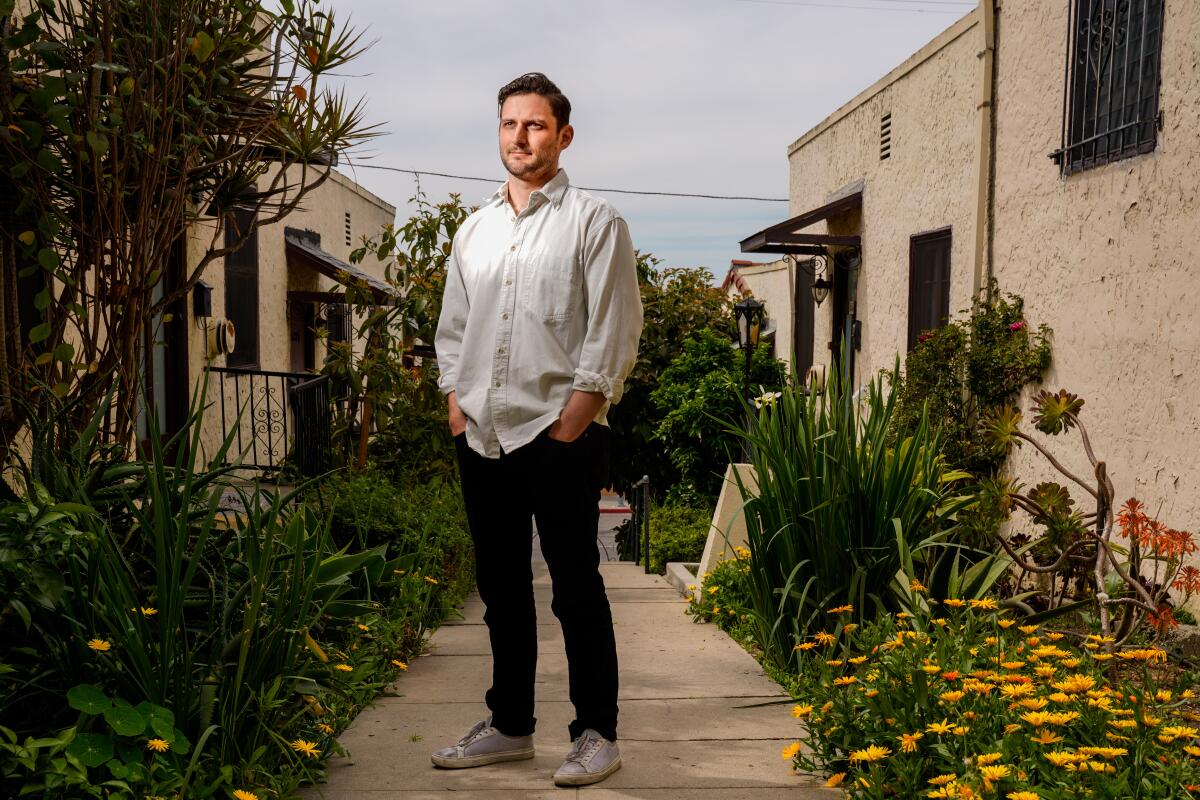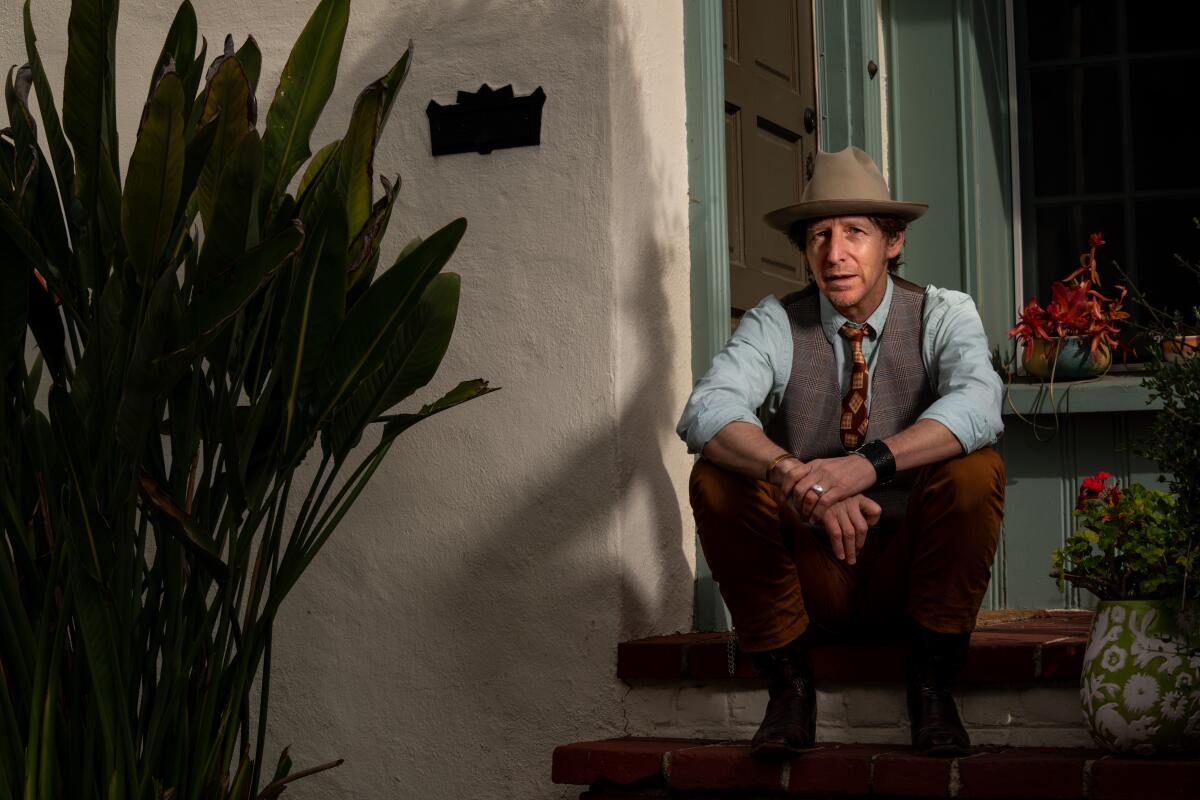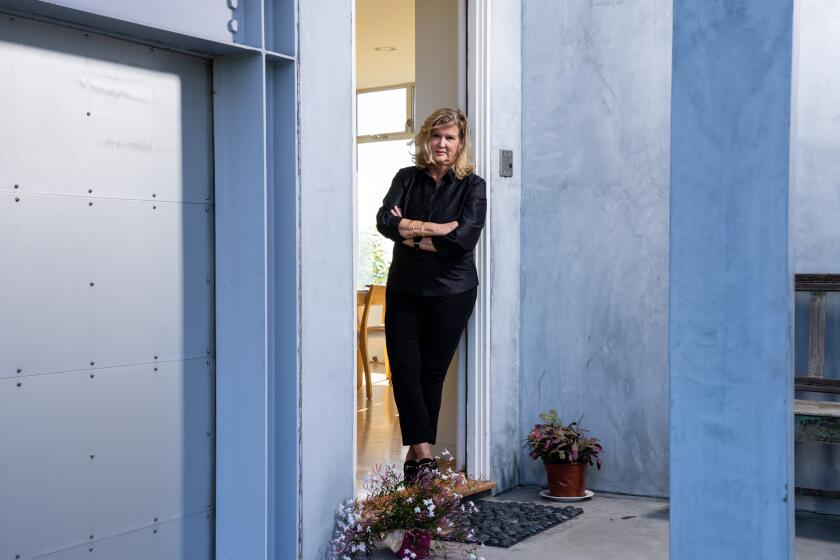Why working actors are anxious about paying their next bills too

Actress Kathleen Wise had just started dress rehearsals for a play she was directing at the Clark Studio Theater at Lincoln Center in New York City when she was given three hours to shut down the production and vacate the theater.
It was March 12 and Broadway went dark, joining Hollywood in a wholesale work stoppage in a bid to slow the spread of the novel coronavirus.
“I had a TV job that I was going to shoot the next day and two other acting gigs lined up,” Wise said. “Within 48 hours, they were postponed indefinitely and the show at Lincoln Center was canceled.”
Acting has always been a vocation with built-in financial insecurity. But the coronavirus pandemic has hit the profession in unprecedented ways. Productions were halted in mid-March, seemingly overnight. Pilot season, the period between February to early May — when the networks create new shows, employing thousands of actors — abruptly ended.
And the kinds of side gigs many actors take on as waiters, bartenders and movers to supplement their income during the lean times have all but vanished. The crisis has left many actors anxious, checking their bank balances and wondering if they’ll be able to survive when nearly every avenue of earning a living has been cut off to them.
With Hollywood on hold, so are the livelihoods of thousands of workers who depend on the film and TV business that has halted during the coronavirus pandemic.
For the past several years, Wise, 37, had successfully carved out a niche acting on TV and regional theater along with directing and teaching.
“I’m always waiting to be hired, waiting around for auditions and impressing other people. I found myself doing a lot of work that I didn’t believe in and I had started to ask myself, ‘Why am I doing this.’ My answer was, ‘I’m really good at it, I’m a working actor, I’m making a living at it. Part of me felt like I’ve come this far, I have an MFA, I have to keep doing this.”
Wise was already considering her future when the pandemic hit.
Two years ago, inspired by the nurses who took care of her mother following a stroke and open heart surgery, Wise began taking online prerequisite nursing courses, just in case. “I’d been straddling the classes between gigs.”
But with all current and future opportunities evaporating, the virus, she said, “was the sign I needed.” She packed up her car with her bags and dog and submitted an application for an accelerated nursing program in her hometown of Cincinnati. “I can be near family, start in August and be done in 16 months,” she said.
Before the virus crisis hit, Josh Schell, 32, had finally felt he was making headway as an actor. He’d moved to Los Angeles three years ago after spending seven years in San Francisco doing theater. Schell secured a manager and theatrical agent. He’d been doing commercials and bit parts in independent films that enabled him to join SAG-AFTRA.
In between auditions and jobs, Schell was able to support himself working for a catering company. Since 2015, he also had a semi-regular gig as a paid actor for Kaiser Permanente, doing improvisations with doctors to help them with their communication skills in a number of scenarios. One scenario involved impersonating a patient pretending that they are injured in order to obtain a painkiller prescription.
“It pays pretty well. A half day paid $350,” Schell said, “and a full day $600.”
But both his acting and side jobs have collapsed, leaving him apprehensive about the future.
“My job this month with Kaiser was canceled,” he said, adding that he was told he’d still get paid for it. His last catering job was March 14 and the company’s manager sent him information on unemployment insurance.
Mulling over applying for unemployment and considering financial help from his parents has been sobering.
“I was really struggling to get by before this happened. Now, being in a position all of a sudden where there is no money coming in has really made me realize how close to the edge I was and am financially.”
The pandemic has left every sector of the economy scrambling for financial help. For actors and others in the entertainment industry, there is short-term support in the form of the federal government’s $2 trillion relief package, including increased unemployment benefits.
As the coronavirus outbreak continues to upend business across the country, what will it take to get Hollywood back to work?
There are also a slew of industry emergency-assistance funds like those offered by the SAG-AFTRA Foundation. But given the protracted nature of the shutdown and the volume of need, these stopgap measures are not enough.
Before the virus, the SAG-Aftra Foundation received six to 10 applications for emergency relief per week but during the first week of the shutdown it had already received 125 requests.
“There’s a huge need among the acting community,” said David White, national executive director of SAG-AFTRA. “They’ve been hit on all sides. We coordinated with others in the industry to make sure that the legislators understand our needs when crafting the relief bill and that came down as a positive thing, but it is something that can easily be dropped without a lot of advocacy.”
The current reality has made an already uncertain profession all the more precarious.
“I feel like I’m in denial about how long and how hard this is going to be,” said Lucy Walters, 37. Over the past 15 years, the New York-based actress has worked as a series regular on such shows as “Power” and “Get Shorty,” roles on “Law & Order: SVU” and films like “Tesla,” but now finds herself at a loss.
“I was filming a recurring part on a new pilot when they halted production,” she said. “I was talking to my agent. I don’t even know if we’re going to get paid. There are all these force majeure clauses in our contracts,” Walters said, referring to situations where contracts are canceled due to an extraordinary event or circumstance.
“I have a little bit of savings, and I’m watching them dwindle; I do think about what this will mean,” she added. “I’m a working-class actor. I’m not a household name, but I do make an OK living and that is something I feel proud of. I waitressed, I lived with a mantra of living frugally and I was always waiting until the other shoe dropped. Now it’s dropped.”
Few actors make the kind of money most associate with Hollywood celebrities. In reality, only a small percentage of actors actually earn a living solely from acting.

Lew Temple, 50, is one. For the past 23 years he has earned a living with numerous recurring guest starring roles on television (“The Walking Dead” “Walker Texas Ranger) and films (“The Lone Ranger,” “Waitress”).
“ I pack a lunch and go to work every day,” Temple said. “There are high and low tides and I try to ride them both out.”
After roles in “21 Grams” and the Rob Zombie cult hit “The Devil’s Rejects,” Temple says he stopped having to hustle on the side, painting houses and moving furniture. For a time he went home to Texas and did voice-over work for grocery store commercials.
“I’d book 20 spots and a pocketful of money.” But, he says, “I’d be hard pressed going back to that realm to provide for my family.”
Temple, who lives in Silver Lake with his wife and 12-year-old daughter, says the pressure right now is enormous. He had an independent film and a TV pilot scheduled. If the stay-at-home order goes beyond a couple of months things, he will become financially squeezed.
“We’ve got to go into our savings,” he said. “I’ve got to look at pulling funds of my retirement and pension plans.”
He’s also considering talking to his creditors about extensions.
The pandemic however, has made him reflective. “We’re all in the same situation, not just our industry but the nation. I think it’s brought to our attention just how many people live paycheck to paycheck.”
“It’s the unknown of this that is so incomprehensible. You’re saying we may not go back to work until August or September. As performers we know how do that, never knowing about tomorrow. I have had a good sense of success and I have to be open to taking tomorrow and be available about taking into account the unknown. And man, there’s not anything more unknown than this.”
For Raymond Lee, 36, a Los Angeles-based actor who learned to live modestly over the past 10 years building his career, this is a waiting game.
“I’m pretty frugal,” said Lee, who was in the HBO series “Here and Now” and will be featured in the upcoming film, “Top Gun: Maverick.”
“I made the mistake of living outside my means once before and got burned. I once booked three commercials in a week and based on the last one I said I could live for a year. But none of them ran and I ended up on unemployment, borrowing money to make rent. It was the worst year of life. But it taught me a valuable lesson. Now, if I ever make a big lump sum, I put it away. This business is very uncertain.”
But Lee, who lives with his wife who is working from home and their 1-year-old daughter, says the longest he’s ever gone without work is one or two months.
“My mind knows how to deal with that length,” Lee said. “If there is no hope of auditions down the line, it will start to get grim. I’m prepared but I just don’t know.”
More to Read
Inside the business of entertainment
The Wide Shot brings you news, analysis and insights on everything from streaming wars to production — and what it all means for the future.
You may occasionally receive promotional content from the Los Angeles Times.













